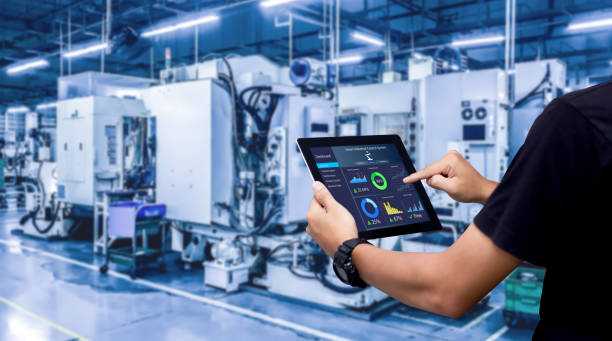Modular Manufacturing: Revolutionizing Production Flexibility
Adaptability in manufacturing has become a critical factor for businesses striving to stay competitive in today's rapidly evolving market landscape. Modular manufacturing, a groundbreaking approach to production systems, is emerging as a game-changer for companies seeking to enhance their operational agility and responsiveness to market demands.

The concept of modularity in manufacturing draws inspiration from the success of modular design in other industries, such as electronics and construction. By applying similar principles to production processes, companies can create highly adaptable and scalable manufacturing systems that can quickly pivot to meet new market demands or incorporate technological advancements.
Historical Context and Industry Developments
The roots of modular manufacturing can be traced back to the mid-20th century when the automotive industry began experimenting with modular assembly techniques. However, it wasn’t until the late 1990s and early 2000s that the concept gained significant traction across various industrial sectors.
The rise of globalization, increasing product complexity, and the need for mass customization have been key drivers in the development of modular manufacturing. As companies faced pressure to reduce costs, improve quality, and respond faster to market changes, they began exploring more flexible production methods.
In recent years, advancements in robotics, artificial intelligence, and Internet of Things (IoT) technologies have further accelerated the adoption of modular manufacturing. These technologies have enabled the creation of smart, interconnected modules that can communicate and coordinate with each other, leading to even greater efficiency and flexibility in production processes.
Benefits of Modular Manufacturing
The adoption of modular manufacturing offers numerous advantages for businesses across various industries:
-
Increased Flexibility: Modular systems allow for rapid reconfiguration of production lines to accommodate new products or changes in demand.
-
Faster Time-to-Market: By using pre-designed and pre-tested modules, companies can significantly reduce the time required to set up new production lines or introduce new products.
-
Cost Reduction: Modular manufacturing can lead to lower capital expenditures, as modules can be reused or repurposed for different products or production needs.
-
Improved Quality Control: Each module can be tested and optimized independently, leading to better overall product quality and consistency.
-
Enhanced Scalability: Companies can easily scale their production capacity by adding or removing modules as needed, without significant disruption to existing operations.
Challenges and Implementation Considerations
While the benefits of modular manufacturing are compelling, implementing this approach is not without challenges:
-
Initial Investment: The upfront costs of transitioning to a modular manufacturing system can be substantial, requiring careful planning and financial analysis.
-
Standardization: Developing standardized interfaces and protocols for modules across different suppliers and systems can be complex and time-consuming.
-
Workforce Training: Employees need to be trained in new skills and processes to effectively work with modular manufacturing systems.
-
Supply Chain Complexity: Managing a supply chain for modular components can be more complex than traditional manufacturing approaches, requiring sophisticated logistics and inventory management systems.
-
Design Constraints: Modular design may impose certain limitations on product design, potentially impacting product differentiation or aesthetics.
Case Studies: Modular Manufacturing in Action
Several companies across different industries have successfully implemented modular manufacturing, demonstrating its potential to transform production processes:
-
Automotive Industry: A leading German automaker has adopted a modular production system that allows them to produce multiple vehicle models on the same production line, significantly reducing costs and improving flexibility.
-
Electronics Manufacturing: A major consumer electronics company has implemented a modular approach to smartphone production, enabling rapid product iterations and customization options for different markets.
-
Aerospace Sector: An aircraft manufacturer has utilized modular manufacturing techniques to streamline the production of complex components, reducing assembly time and improving quality control.
-
Pharmaceutical Industry: A global pharmaceutical company has implemented modular manufacturing units for drug production, allowing for rapid scaling of production capacity and easier compliance with regulatory requirements across different markets.
Key Strategies for Implementing Modular Manufacturing
• Conduct a thorough analysis of your current production processes to identify areas suitable for modularization
• Invest in employee training and change management to ensure a smooth transition to modular manufacturing
• Collaborate with suppliers and partners to develop standardized interfaces and protocols for modular components
• Implement advanced data analytics and IoT technologies to optimize module performance and coordination
• Regularly assess and update your modular manufacturing strategy to align with evolving market demands and technological advancements
As industries continue to evolve and face new challenges, modular manufacturing stands out as a powerful solution for companies seeking to enhance their operational agility and competitiveness. By embracing this innovative approach, businesses can position themselves to respond quickly to market changes, optimize their production processes, and drive sustainable growth in an increasingly dynamic global marketplace.





